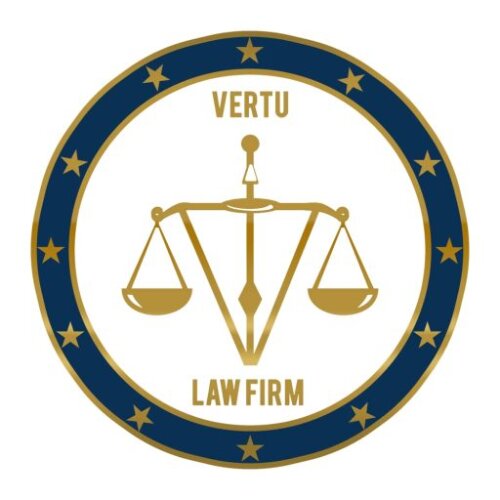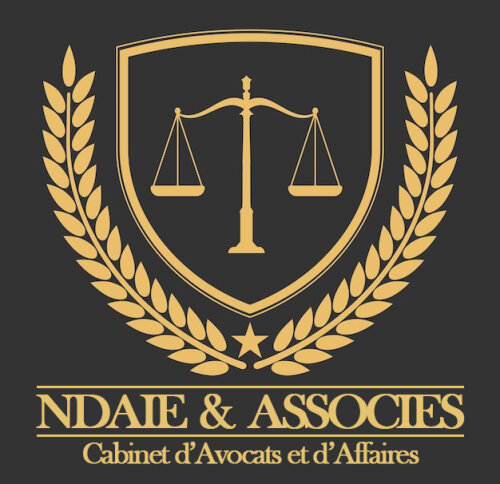Best Landlord & Tenant Lawyers in Lubumbashi
Share your needs with us, get contacted by law firms.
Free. Takes 2 min.
Free Guide to Hiring a Real Estate Lawyer
List of the best lawyers in Lubumbashi, DR Congo
About Landlord & Tenant Law in Lubumbashi, DR Congo:
Landlord & Tenant law in Lubumbashi, DR Congo governs the rights and responsibilities of both landlords and tenants in rental agreements. It covers issues such as rent payments, maintenance of the property, eviction procedures, and dispute resolution.
Why You May Need a Lawyer:
You may need a lawyer in Landlord & Tenant matters in Lubumbashi, DR Congo if you are facing issues such as rent disputes, lease agreements, eviction notices, or property maintenance problems. A lawyer can help you understand your rights, negotiate with the other party, and represent you in court if necessary.
Local Laws Overview:
In Lubumbashi, DR Congo, the Landlord & Tenant law is primarily based on the Civil Code. Key aspects include rent control regulations, notice requirements for eviction, security deposit regulations, and property maintenance responsibilities for both landlords and tenants.
Frequently Asked Questions:
1. Can a landlord increase rent at any time?
No, landlords in Lubumbashi, DR Congo can only increase rent after the expiration of the lease agreement, and the increase must be reasonable.
2. What are the notice requirements for eviction?
Landlords must provide tenants with written notice of eviction at least three months before the intended eviction date.
3. Can a tenant withhold rent for unresolved maintenance issues?
Yes, tenants can withhold rent if the landlord fails to address significant maintenance issues that affect the habitability of the property.
4. Can a landlord enter the property without permission?
No, landlords must give notice before entering the rental property, except in cases of emergency.
5. What are the rules regarding security deposits?
Landlords in Lubumbashi, DR Congo can request a security deposit from tenants, but it must be refunded in full at the end of the lease, minus any damages or unpaid rent.
6. Can a landlord evict a tenant without a valid reason?
No, landlords can only evict tenants for legally valid reasons, such as non-payment of rent or violation of lease terms.
7. How can I terminate a lease agreement early?
You may be able to terminate a lease agreement early by providing written notice to the other party and complying with any termination clauses in the lease agreement.
8. Can a tenant sublet the rental property?
Tenants in Lubumbashi, DR Congo can sublet the rental property with the landlord's permission, unless the lease agreement specifically prohibits subletting.
9. What are my rights as a tenant regarding repairs and maintenance?
Landlords are responsible for maintaining the rental property in a habitable condition, including making necessary repairs to ensure the property is safe and sanitary.
10. How can I resolve a dispute with my landlord or tenant?
If you are unable to resolve a dispute with your landlord or tenant directly, you may consider mediation or seeking legal assistance to help resolve the issue.
Additional Resources:
For more information on Landlord & Tenant law in Lubumbashi, DR Congo, you can contact the Ministry of Housing and Urban Development or the local Housing Tribunal for assistance.
Next Steps:
If you require legal assistance in Landlord & Tenant matters in Lubumbashi, DR Congo, consider contacting a local law firm specializing in property law or seeking advice from a legal aid organization for guidance on your rights and options.
Lawzana helps you find the best lawyers and law firms in Lubumbashi through a curated and pre-screened list of qualified legal professionals. Our platform offers rankings and detailed profiles of attorneys and law firms, allowing you to compare based on practice areas, including Landlord & Tenant, experience, and client feedback.
Each profile includes a description of the firm's areas of practice, client reviews, team members and partners, year of establishment, spoken languages, office locations, contact information, social media presence, and any published articles or resources. Most firms on our platform speak English and are experienced in both local and international legal matters.
Get a quote from top-rated law firms in Lubumbashi, DR Congo — quickly, securely, and without unnecessary hassle.
Disclaimer:
The information provided on this page is for general informational purposes only and does not constitute legal advice. While we strive to ensure the accuracy and relevance of the content, legal information may change over time, and interpretations of the law can vary. You should always consult with a qualified legal professional for advice specific to your situation.
We disclaim all liability for actions taken or not taken based on the content of this page. If you believe any information is incorrect or outdated, please contact us, and we will review and update it where appropriate.












